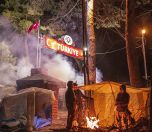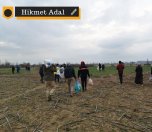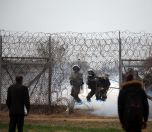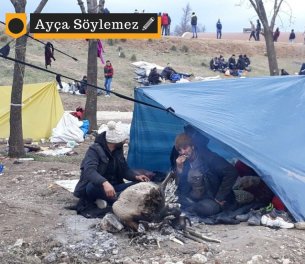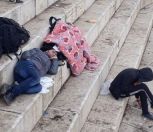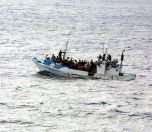* Photo: İslam Yakut - Edirne / AA
Click to read the article in Turkish
Human Rights Watch (HRW) has released a written statement and announced that the refugees have been detained, assaulted, sexually assaulted, robbed, and stripped by the security forces of Greece and unidentified armed people at Turkey-Greece border.
Referring to the remarks of the refugees, the HRW has indicated that those who crossed to the other side of the border were stripped down to their underwear and forced across the Evros river back to Turkey.
The organization has also raised concerns over the attitude of the European Union (EU), arguing that the "top EU officials have praised Greece's border control measures and provided support through the European Border and Coast Guard Agency (FRONTEX)."
In response to the rising influx of refugees, Prime Minister of Greece Kyriakos Mitsotakis made a statement on March 1 and announced that the National Security Council decided to increase "the level of deterrence at their borders to the maximum." He also indicated that "they would suspend asylum applications for a month and deport migrants entering illegally."
Refugees trying to leave Turkey for Europe through Greece are still waiting under hard conditions at Pazarkule Border Gate in Edirne Province.
'EU should protect people in need'
Speaking about the violations of rights at the border, Nadia Hardman, a refugee rights researcher and advocate at the HRW, has said:
"The European Union is hiding behind a shield of Greek security force abuse instead of helping Greece protect asylum seekers and relocate them safely throughout the EU.
"EU should protect people in need rather than support forces who beat, rob, strip, dump asylum seekers and migrants back across the river."
Battery, harassment, insults...
Between March 7 and 9, the HRW interviewed 21 refugees, 17 of whom were men and 4 women, in Turkey about how they tried to enter Greece over the land border following Turkey's announcement that it would no longer stop refugees from leaving Turkey to reach the EU.
The interviewed refugees told the HRW that they traveled to Turkey's Pazarkule border gate on the Greece-Turkey border and to the Evros river, which forms a natural border between Turkey and Greece, to the south of Pazarkule. Eight of the interviewees said that Turkey's police transported them to border villages and showed them where to cross into Greece.
In response, the government of Greece reinforced its border with police, army, and special forces, which fired teargas and reportedly rubber bullets at people who approached the Pazarkule crossing.
Two refugees who spoke to the HRW said that the security forces also used live fire to push people back. One of these people, interviewed in a hospital where he was getting treatment, said he was shot in the leg. According to Turkey, the security forces of Greece shot and killed at least three refugees.
All those interviewed by the HRW said that within hours after they crossed in boats or waded through the river, armed people wearing various law enforcement uniforms or in civilian clothes, including all in black with balaclavas, intercepted everyone in their group.
All said that those people then detained them in official or informal detention centers, or on the roadside, and stole their money, mobile phones, and bags before summarily pushing them back to Turkey.
Allegation of torture with electric shocks
Seventeen interviewees described how those people assaulted them and others, including women and children, through electric shocks, beating with wooden or metal rods, prolonged beating of the soles of feet, punching, kicking, and stomping.
The HRW also interviewed five citizens of Turkey living in border villages who described how between February 28 and March 6 they had helped care for large groups of people who returned injured and almost naked from Greece saying that the security forces of Greece had beaten, robbed, stripped, and deported them.
In one case, an interviewee described Greece's security forces sexually assaulting his wife when they crossed the border. "They [Greek security forces] tried to search my wife and touched her breasts," said a Syrian man who was travelling with his wife and children.
"Then they tried to take off her headscarf and her trousers. When I tried to stop them, they beat me really badly with their fists, feet, a heavy plastic rod, and a metal stick. They hit my 2-year-old daughter with a heavy plastic stick on the head so that she still has a bruise."
FRONTEX 'doesn't have information'
When the HRW requested information from the FRONTEX about the allegations, the organizations replied on March 16, saying that it did not have the requested information and that it would respond as soon as it did.
Within this context the HRW has made a call to the related authorities:
"Greece should immediately reverse its March 1 decision to suspend for one month access to asylum for people irregularly entering the country and to deport them, where possible, to their countries of origin or transit.
"The Greek Parliament should investigate, and FRONTEX should monitor, any Greek security force abuse and summary deportation of asylum seekers and migrants.
"EU member states should urgently relocate asylum seekers from Greece to other EU countries and fairly process their asylum claims.
"The European Commission should urge Greece to reinstate asylum procedures for people irregularly entering Greece from Turkey, end summary returns to Turkey, and press the authorities to prosecute abusive officials.
"It should also tie its support for border management to Greece to its commitment to guarantee the right to seek asylum and open legal proceedings against Greece with a view to referring the case to the European Court of Justice if Greece fails to effectively resume access to asylum.
"Turkey should not compel anyone to cross the border irregularly into Greece." (AS/SD)
Click here to read the full report in English and here for Turkish




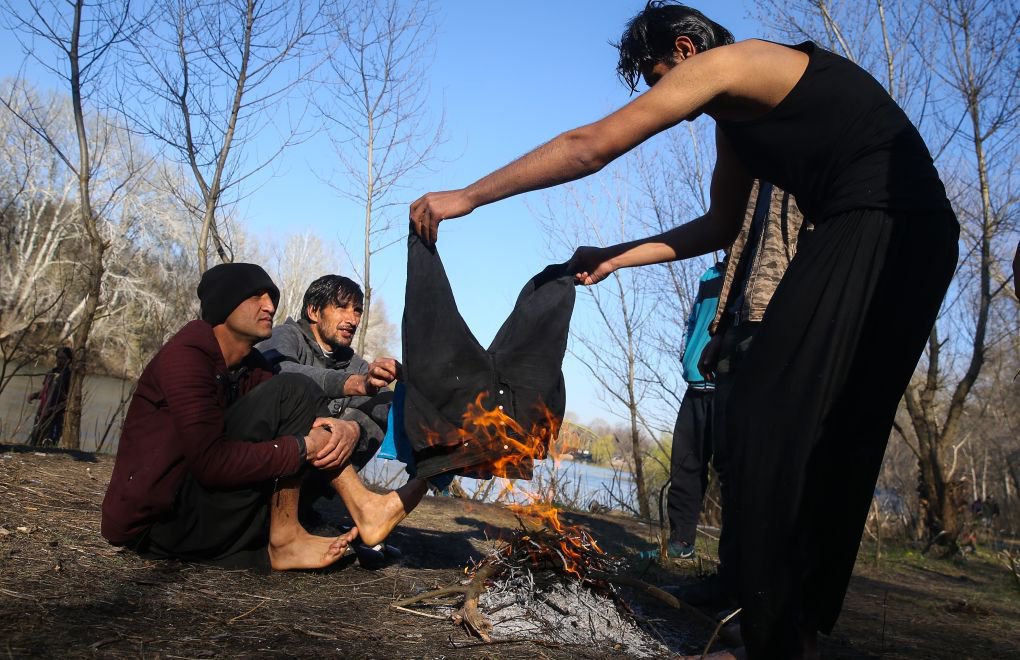
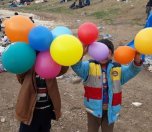


-132.jpg)
